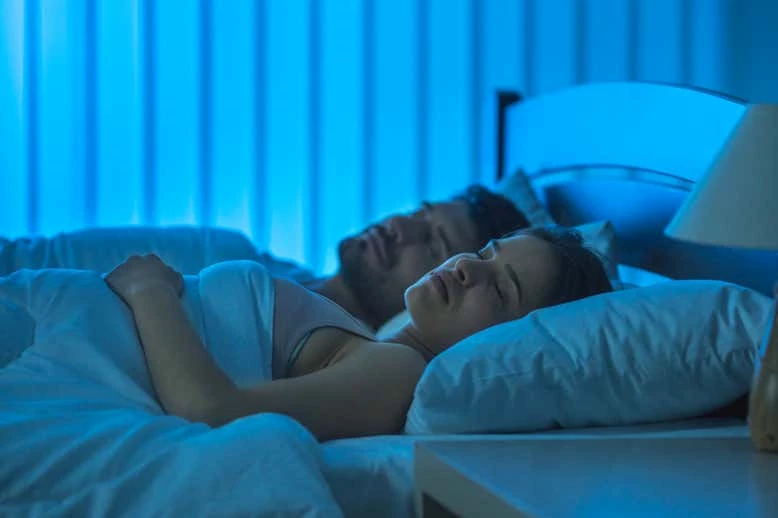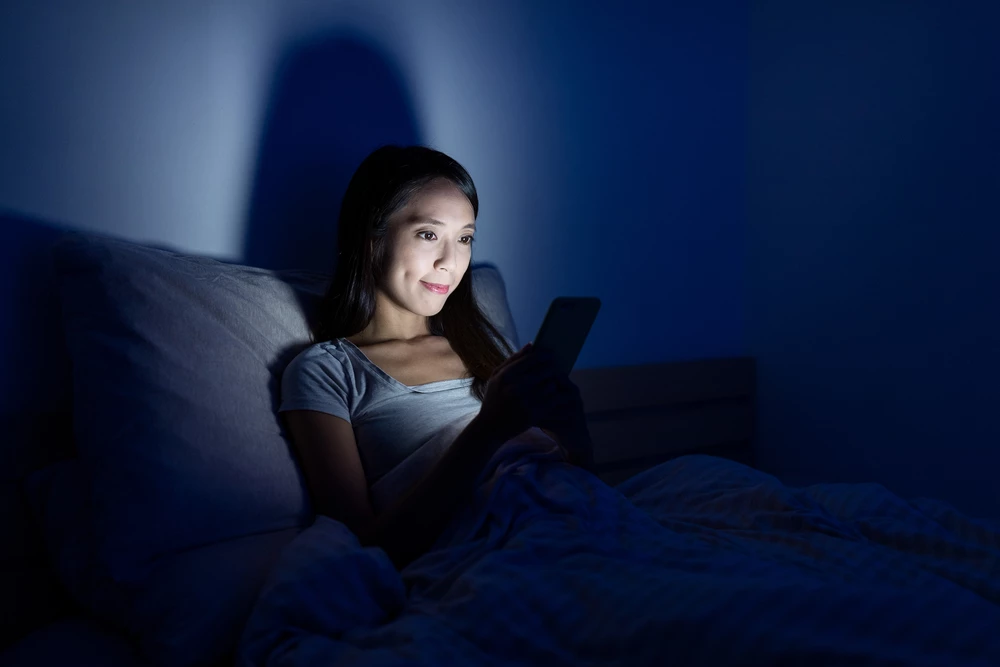Some screen time before bedtime may, in fact, be safe for sleep
How historical precedents hindered the acceptance of airborne COVID-19 transmission / Women prefer not to participate in competitive situations when making decisions for themselves, study finds
A small amount of screen time before bed may not significantly impair sleep quality. Several studies have found that exposure to blue light, which is emitted by laptop and smartphone screens, can reduce sleepiness and impair the quality of sleep. One of the proposed mechanisms is that blue light causes bodily systems to block the hormone melatonin, which normally induces drowsiness.
Christine Blume and her colleagues at the University of Basel in Switzerland wanted to determine if blue light that affects only intrinsically photosensitive retinal ganglion cells (ipRGCs) in the eyes has any effect on subsequent sleep quality.
Blume explains that these eye cells, along with cones and rods, are activated by light, but ipRGCs are especially sensitive to blue light and are believed to play a significant role in establishing the body's internal circadian rhythms.

The blue light from screens can delay you nodding off if you get too much of it (Illustrative image).
In a sleep laboratory, 29 individuals were exposed to two different types of light while being evaluated by the researchers. The average age of the participants was 23, and they all had healthy sleep histories. On one of the nights the participants spent in the laboratory, they were exposed to one type of light from a screen for an hour, concluding 50 minutes before they normally went to sleep. The average bedtime of participants was 11 p.m. A week later, the participants were exposed to a different light condition for one night.
To the participants, the two different lights would have appeared nearly identical. One, however, contained a high proportion of blue light, which would be detected by the specialized retinal ganglion cells, whereas the other contained a much lower proportion of blue light and would therefore not be detected by these cells. The participants' brain activity was measured using an electroencephalogram (EEG) device while they slept.
To determine how melatonin levels changed, the researchers collected saliva samples from the participants every 30 minutes during the five hours preceding sleep, as well as in the morning. Participants were asked about their level of drowsiness before bedtime. They were asked how well they slept and how alert they felt in the morning.

Some screen time before bedtime may in fact be safe for sleep (Illustrative image).
Compared to the other frequency of light, the blue light that was supposed to affect melatonin decreased blood levels of the hormone by approximately 14%, but had no effect on self-reported sleep quality. Blume asserts that the relationship between melatonin and sleep may not be as strong as commonly believed. According to her, there are several reasons why blue light may not have affected the sleep of the participants.
The need to sleep at a specific time is largely determined by two factors: the pressure to sleep, which builds throughout the day, and the circadian clock, the body's internal clock that regulates when we must sleep and wake up on a 24-hour cycle. The interaction between these variables also has an effect.
Blume suggests that the effects of blue light on the circadian clock may be neutralized in healthy young adults, such as those who participated in the study, due to the influence of sleep pressure.
She also suggests that the effect of blue light on sleep quality may be mediated by eye cells other than ipRGCs. Blume adds that if the screens had been left on closer to bedtime, it may have taken the participants longer to fall asleep, but the researchers wanted to interview them and allow them to brush their teeth.
“This study shows that exposure to bright light in the evening for a limited amount of time does not necessarily impact sleep,” says Blume. “I don’t think this study changes our overall perspective on blue light’s impact on sleep, it just adds a piece of information to the existing evidence.”
“This does not show that blue light before bed will not affect sleep,” says Stuart Peirson at the University of Oxford. “It just shows that the type of blue light they used, at the intensity the used, did not in this study.”
“I think what this paper speaks to is how complex the processes of sleep and wakefulness can be,” says Hugh Selsick at University College London. “The role of melatonin in sleep-wake regulation is well established, but it is only one of several factors that are involved in the process, such as the homeostatic sleep drive, mental state, physical health, environment, etc.”
Journal reference: Sleep , DOI: 10.1093/sleep/zsac199
End of content
Không có tin nào tiếp theo
